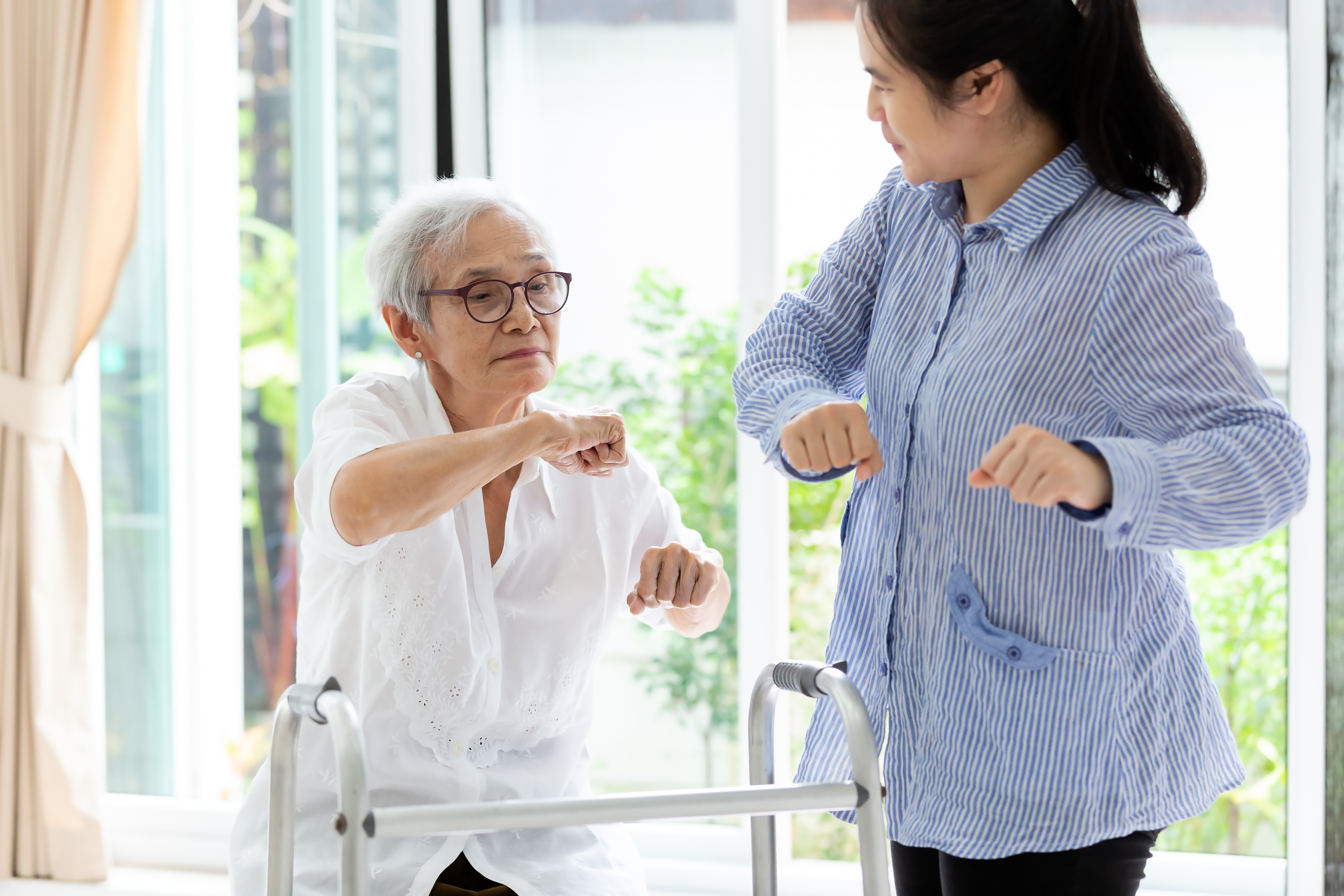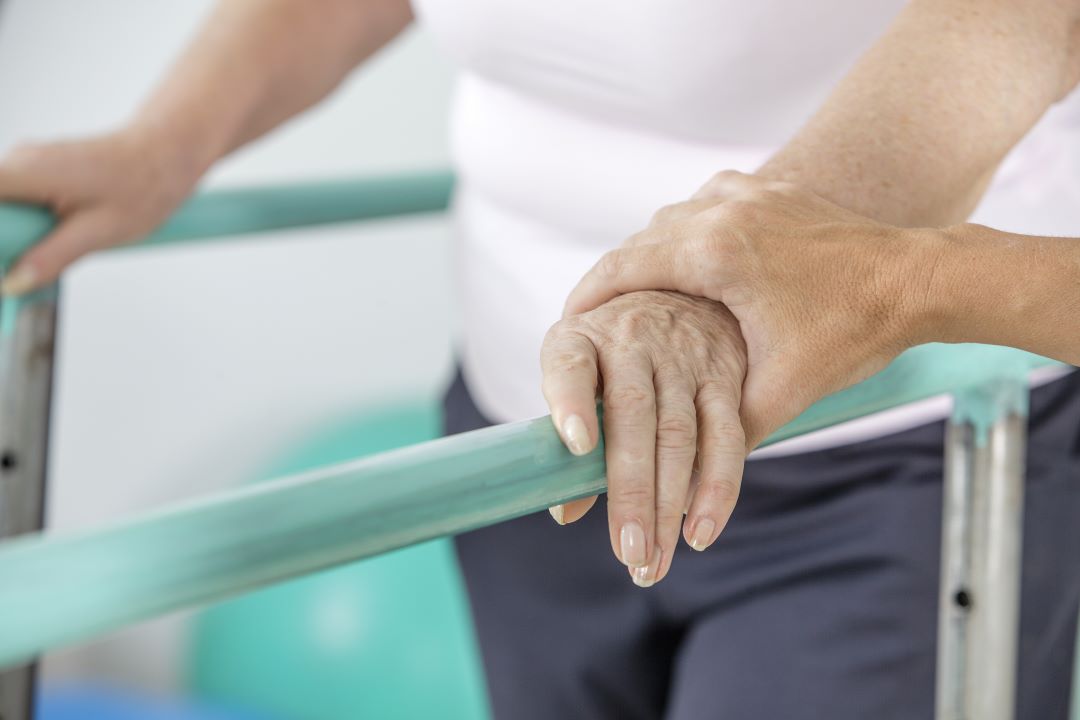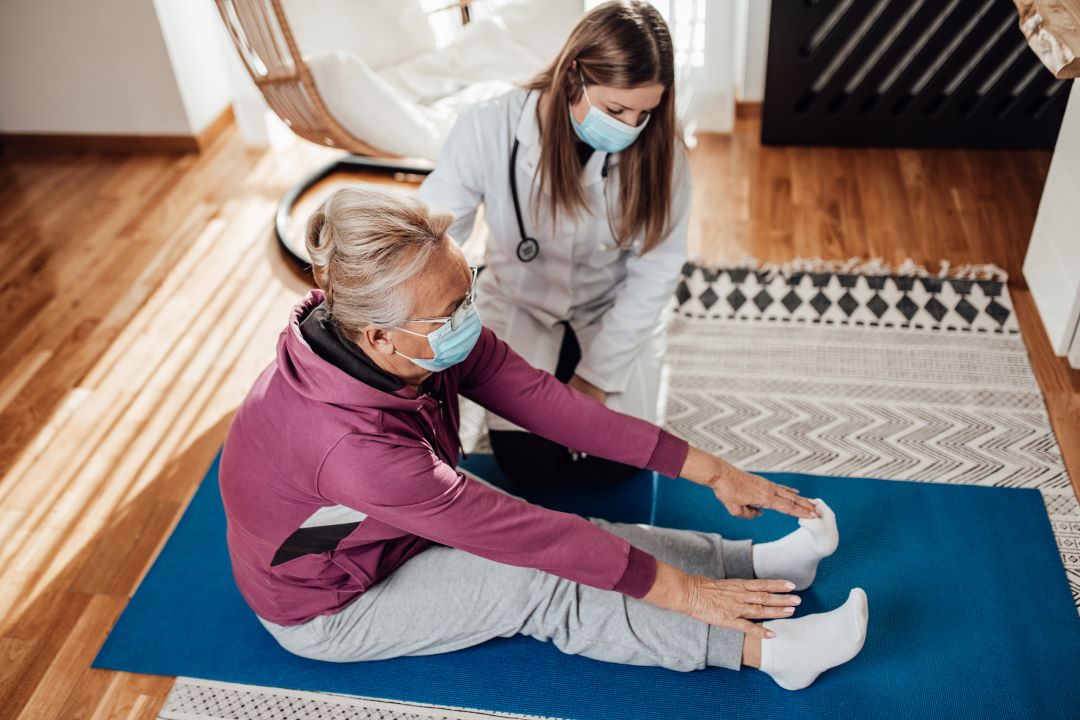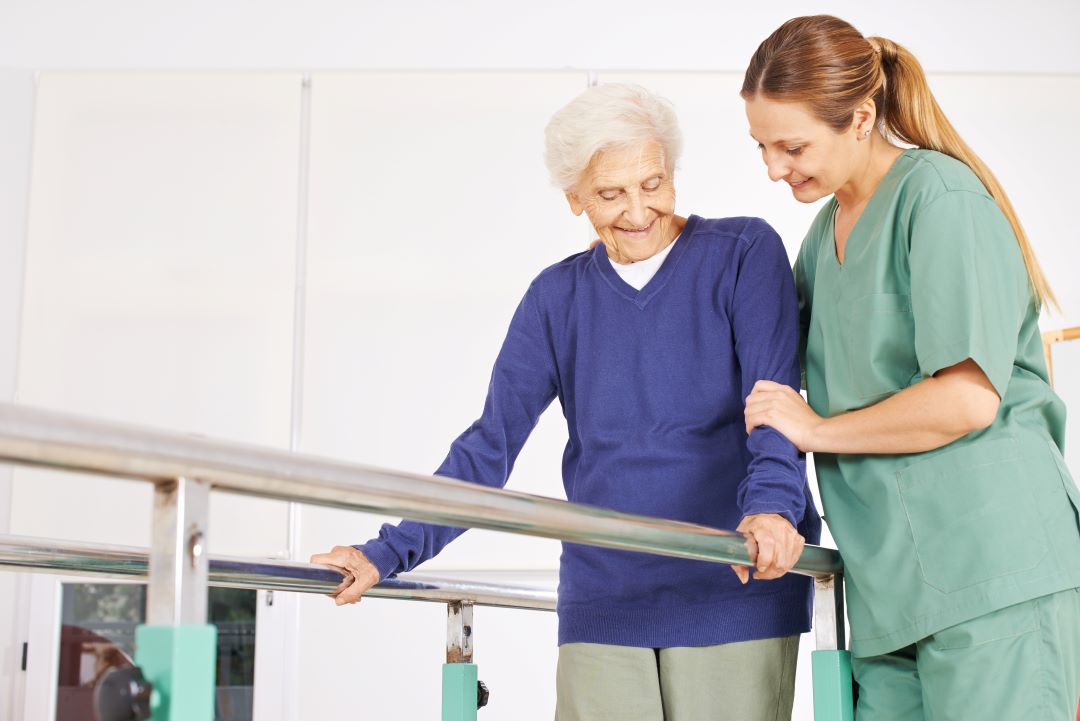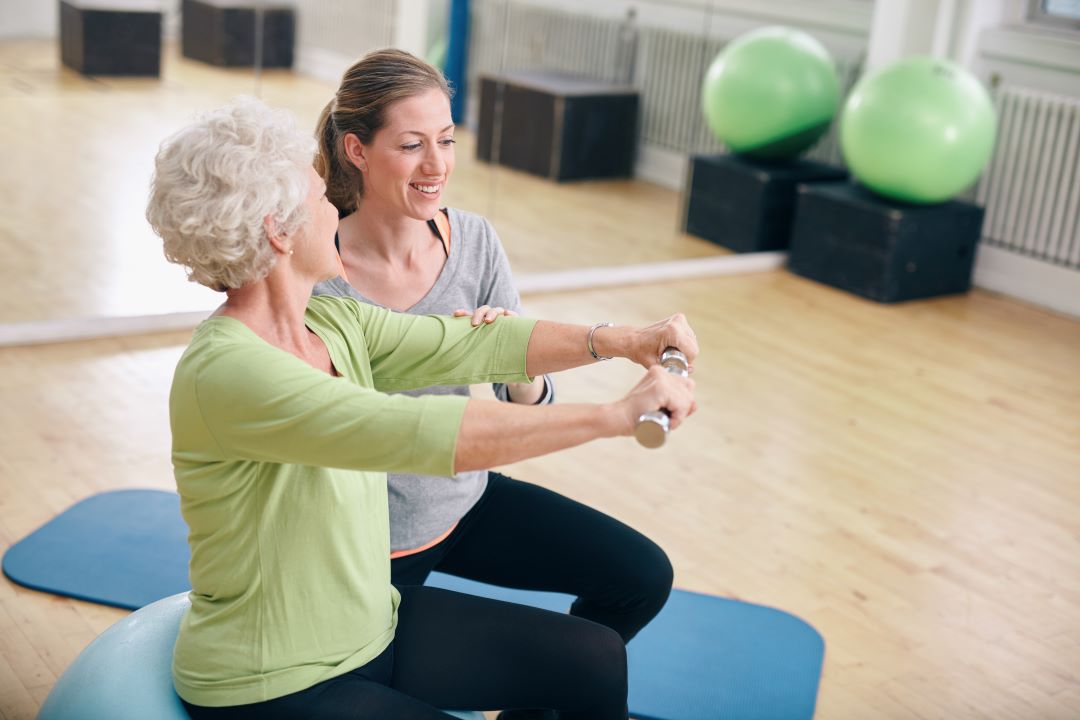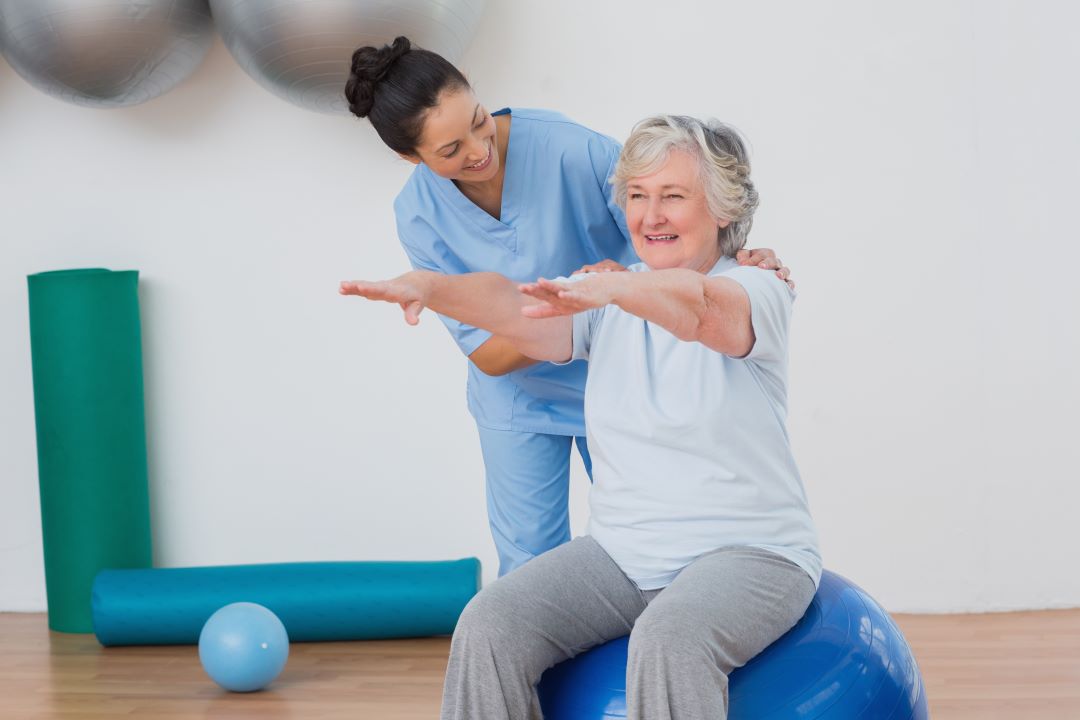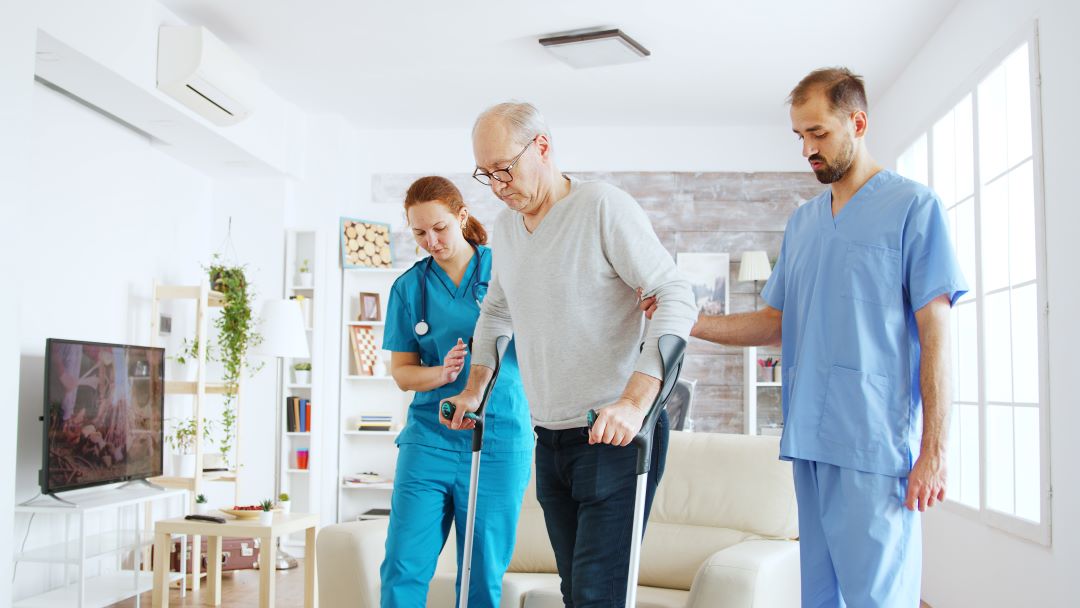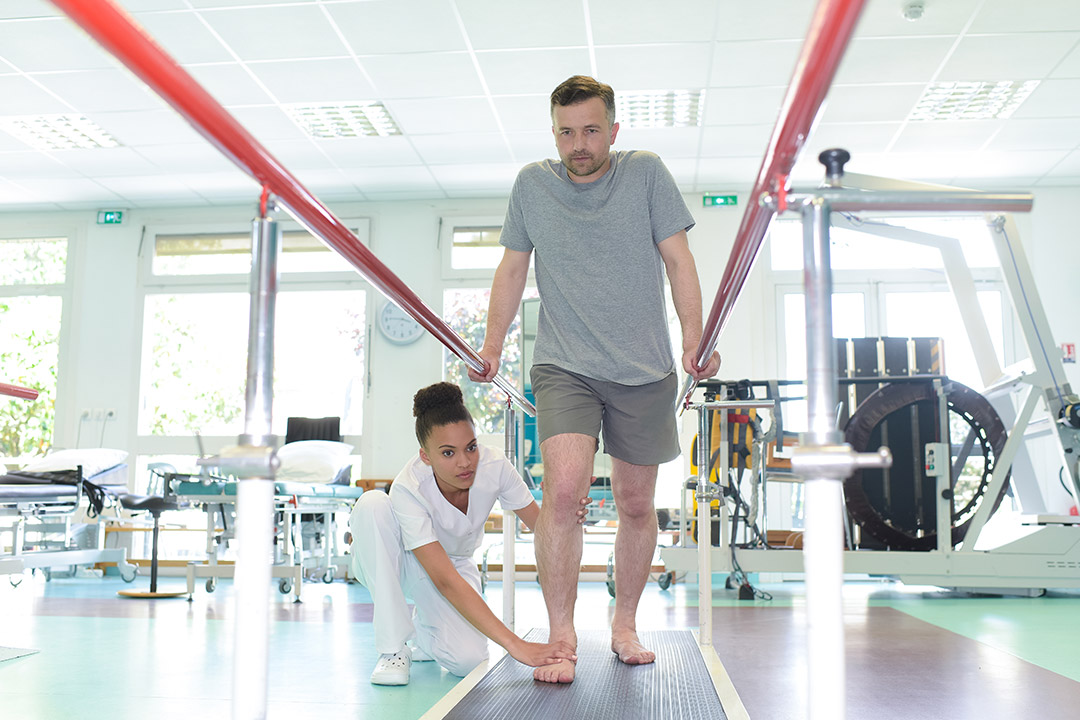Multiple sclerosis takes many forms and progressions, which have in common a degree of inconvenience in moving around and functioning in one’s environment. Diagnosis is not the end of normal life, but it requires a new attitude toward it, an active attitude to achieving normalcy by all available means. Along with medications, monitoring, and precautions to stay healthy, exercise is essential to managing the progression of MS.
According to the National MS Society, some of the most common symptoms of MS include fatigue, walking (gait) difficulties, spasticity, numbness/tingling, and weakness. Each of these symptoms can be ameliorated by exercise—specifically, professionally administered mobility training. It’s easy to confuse flexibility and mobility. According to the Mayo Clinic, “flexibility refers to the ability to move a joint through the full range of motion, or fully lengthen a muscle. Mobility involves a bit more. It includes flexibility, as well as strength, coordination and balance.” Mobility training is about making movements efficient and functional.
Our physical and occupational therapists recommend specific exercise protocols to maintain mobility. We understand that individuals with MS need expert monitoring and guidance that changes as their condition changes. Exercise programs that incorporate mobility training can have far-reaching positive effects beyond movements of daily living. Here are some of the mobility tools we use to holistically address the ebbs and flows of MS symptoms.



